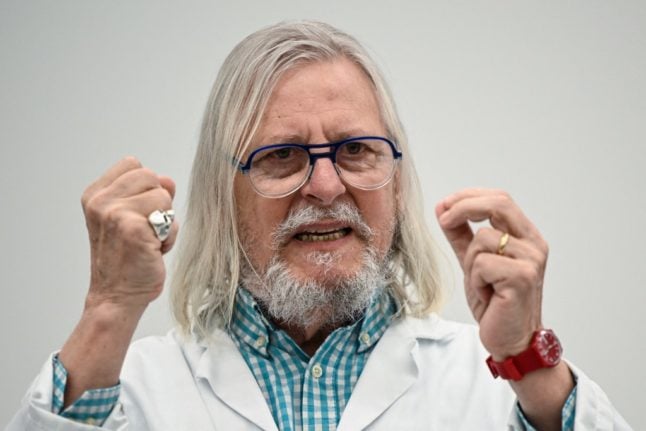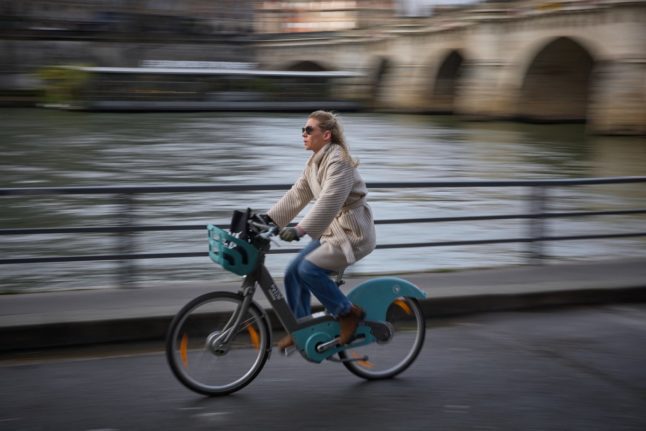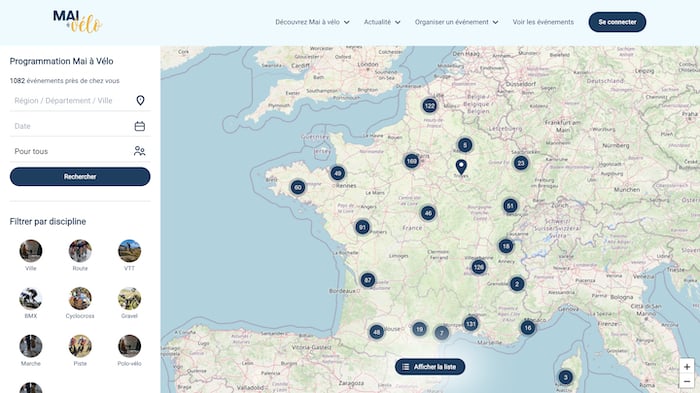The findings of the joint investigation into the IHU at Marseille by the Inspection générale des affaires sociales (IGAS) and the l’Inspection générale de l’éducation, du sport et de la recherche (IGESR) prompted Health Minister François Braun and Research Minister Sylvie Retailleau to refer the unit to the city’s public prosecutor, urging it to investigate “serious malfunctions” at the institution.
Raoult was head of the unit from its foundation in 2011 until his retirement this summer.
The controversial microbiologist gained significant worldwide attention during the Covid-19 pandemic for his vociferous promotion of hydroxychloroquine as a treatment, despite a lack of evidence on its effectiveness.
READ ALSO Five minutes to understand: Whatever happened to French professor Didier Raoult?
He was succeeded as director by Pierre-Edouard Fournier.
The ministers said that a number of issues highlighted in the latest report are “likely to constitute offences or serious breaches of health or research regulations”.
Fournier, and the institute’s seven founding members – including the University of Aix-Marseille, Assistance Publique-Hospitals de Marseille, the Research Institute for Development or the army health service – will now be summoned by their supervisory bodies to “implement a proactive action plan as soon as possible” which “will condition the continuation of the activity of the IHU-MI and its funding by the State”, according to the joint communiqué of the ministers.
The IHU was already under judicial investigation for “forgery in writing”, “use of forgery in writing”, and “interventional research involving a human person not justified by his usual care without obtaining the opinion of the committee for the protection of persons and the authorisation of the Agence nationale de sécurité du médicament et des produits de santé (ANSM),” the Marseille prosecutor’s office said on Tuesday.
In an earlier report, the ANSM had noted “serious breaches of the regulations for research involving humans”, during some clinical trials.
READ ALSO Maverick French Covid doctor reprimanded over ‘breaches’ in clinical trials
François Crémieux, the director of Marseille public hospitals, told local newspaper La Provence on Tuesday that the establishment “shares the observation of managerial excesses of certain hospital-university managers occupying key functions within the infectious diseases division”.
“The legitimacy of the IHU has been affected. It has lost its scientific credibility. It must now be regained. 800 highly skilled professionals work there every day,” he added.
Raoult bit back at the report in a tweet, saying: “I regret that the IGAS/IGAENR mission does not take into account the detailed legal and scientific response that I have provided”.
Separately, Raoult will be in court on Friday as his defamation case against Karine Lacombe, Professor of Infectious Diseases at Sorbonne University Faculty of Medicine, comes before judges.




 Please whitelist us to continue reading.
Please whitelist us to continue reading.
Member comments